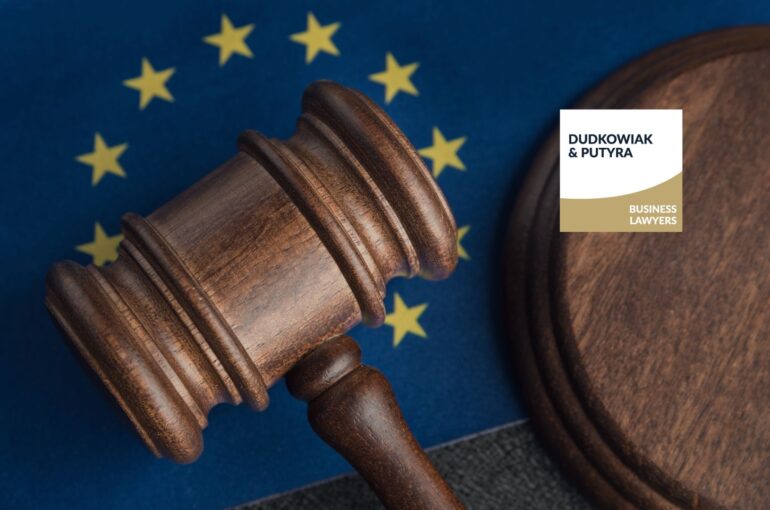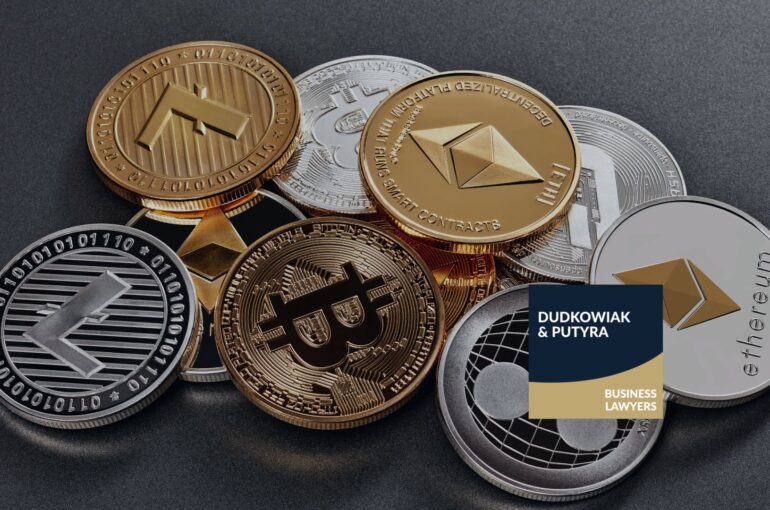All payment services providers and e-money institutions to submit sanctions questionnaires to KNF
On 20th May 2022, the Polish Financial Supervision Authority (KNF) imposed on domestic payment institutions (KIP), small payment institutions (MIP), and domestic electronic money institutions (EMI) the obligation to complete a very detailed sanctions questionnaire.
Deadline to submit the Sanctions Questionnaire
The sanctions questionnaire should be submitted to KNF in electronic form by 7th June 2022:
- via the system supporting the information exchange process for supervised entities (KNF Portal), questionnaire topic: Sanctions Questionnaire, or
- via e-mail to [email protected] address (in which case the file should be protected with a password).
Scope of the KNF Sanctions Questionnaire
The scope of information to be provided under the Sanctions Questionnaire is broad, it includes inter alia:
- information on self-assessment in the field of compliance with sanctions imposed in Regulation (EU) 765/2006, Regulation (EU) 269/2014, Regulation (EU) 833/2014 as well as in the Polish Sanctions Act of 13th April 2022,
- information on including the sanctions measures in internal policies and procedures,
- verification of customers and transactions scanning (frequency, scope),
- information on legal relations with black-listed entities,
- information on correspondent relations with Russian or Belarussian bank,
- information on the quantity of customers with Russian or Belarussian citizenship,
- information on including sanction list in internal AML risk assessment matrix.
Responsibilities and limitations
Within the letter, KNF summarizes and lists the most significant responsibilities and limitations of domestic payment institutions (KIP), small payment institutions (MIP), and domestic electronic money institutions (EMI):
- obligation to freeze the funds (funds) and economic resources of natural persons, legal persons, entities, or bodies specified in the lists annexed to those Regulations (Article 2(1) of Regulation 765/2006, Article 2(1) of Regulation 269/2014),
- prohibition of provision of brokering or other services, as well as the provision of financing or financial assistance in connection with the provision, manufacture, maintenance, and use of prohibited goods and technologies for sale, supply, transfer, or export, directly or indirectly, to any natural or legal person, entity or body in Russia, Belarus or from the non-government-controlled areas of Ukraine’s Donetsk and Luhansk regions, or for use in Russia, Belarus or in the non-government-controlled areas of Ukraine’s Donetsk and Luhansk regions (Art. 2, 2a, 3b, 3c, 3f, 3k, 4 of Regulation 833/2014, Articles 1b, 1d, 1e, 1f, 1g of Regulation 765/2006, Article 4 of Regulation 2022/263),
- prohibition of provision of brokering services, the provision of financing or financial assistance including financial derivatives, as well as insurance and reinsurance, directly or indirectly, relating to the import, acquisition, transportation, or transfer of certain products, raw materials, products, goods or technologies if they originate in Russia or Belarus and are exported from Russia or Belarus (Articles 3g, 3i, 3j of Regulation 833/2014, Articles 1o, 1p, 1q, 1r of Regulation 765/2006);
- prohibition of provision, directly or indirectly, of financing or financial assistance, as well as insurance and reinsurance, relating to the import into the European Union of goods originating in the non-government-controlled areas of Ukraine’s Donetsk and Luhansk regions, as well as goods from Crimea or Sevastopol (Article 2 of Regulation 2022/263, Article 2 of Regulation 692/2014),
- prohibition of accepting deposits from Russian or Belarusian nationals or natural persons resident in Russia in Belarus or legal persons, entities, or bodies established in one of these countries if the aggregate deposits of the natural or legal person, entity, or body concerned exceed EUR 100,000 per credit institution (Article 5b of Regulation 833/2014, Article 1u of Regulation 765/2006),
- prohibition of the direct or indirect purchase, sale, provision of investment services or assistance in the issuance, or any other activity relating to certain transferable securities and money market instruments (Article 5 of Regulation 833/2014, Article 1j of Regulation 765/2006),
- prohibition of transactions related to the management of reserves and assets of the Central Bank of Russia or the Central Bank of Belarus, including transactions with any legal person, entity, or body acting on behalf of the Central Bank of Russia or the Central Bank of Belarus or under the direction of one of these banks (Article 5a of Regulation 833/2014, Article 1ja of Regulation 765/2006),
- prohibition of the sale of transferable securities denominated in any official currency of an EU Member State and issued after 12 April 2022, or the sale of units in collective investment undertakings that provide exposure to such securities, to Russian or Belarusian nationals, or natural persons resident in Russia or Belarus, or legal persons, entities or bodies established in one of these countries (Article 5f of Regulation 833/2014, Article 1y of Regulation 765/2006),
- prohibition of knowingly and intentionally engaging in activities that have the purpose or effect of circumventing the prohibitions of the sanction provisions (Article 12 of Regulation 833/2014, Article 8 of Regulation 2022/263, Article 1m of Regulation 765/2006, Article 9 of Regulation 269/2014, Article 4 of Regulation 692/2014),
- particular attention should be paid to the application of the financial security measure referred to in Article 34.1.2 of the AML Act. The precise determination of the client’s ownership structure, together with the identification of beneficial owners, will be crucial, in particular, for the application of restrictive measures consisting of the freezing of funds (funds) and economic resources owned, held, in effective possession or under the control of natural or legal persons, entities and bodies listed in the sanctions lists (or related to the – Article 2 (1) of Regulation 269/2014).
Sanctions for non-compliance with the KNF letter
Please note that violation of the prohibitions provided for in the sanctioning regulations may be punished with a fine in the amount of up to PLN 20,000,000 or imprisonment of up to 3 years.
Our Team is available to assist you with any questions you may have, and we ask that you contact us as soon as possible.


